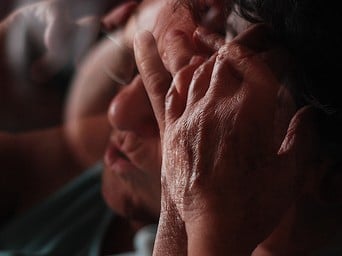 Could the solution to increasing suicide and depression rates among members of the U.S. military lie in a nasal spray? The Army hopes so.
Could the solution to increasing suicide and depression rates among members of the U.S. military lie in a nasal spray? The Army hopes so.
In the midst of a crisis that saw its highest rate of suicide in July, the Army has greenlighted a grant for Dr. Michael Kubek, an Indiana University of Medicine professor, to dig deeper into whether a nasal spray could be a safe and effective way to administer a specific antidepressive neurochemical to the brain and help calm suicidal thoughts.
The Army counted 38 confirmed or suspected suicides in July, a tally that took into account both active- and non-active-duty members of the Army National Guard or Reserve. Three of those active-duty soldiers were deployed at the time of their deaths. Before July, the highest monthly level suicide rate for soldiers was 33 in June 2010 and July 2011, according to statistics released by the Army.
Kubek helped discover thyrotropin-releasing hormone, or TRH, which is known to have antisuicidal and antidepression effects. The problem is that the naturally occurring chemical cannot easily cross the “blood-brain barrier.” The barrier is meant to protect the nervous system by keeping out any substances in the blood that could injure the brain, including hormones and neurotransmitters. But it also makes it extremely difficult to get TRH to the brain, rendering normal methods of delivering the chemical, through pills or injection, largely unhelpful.
The military is hoping Kubek, an associate professor of anatomy and cell biology and of neurobiology, can use a three-year grant to work with other researchers to use a nasal spray to get TRH safely into the brain and calm soldiers’ thoughts.
Kubek’s research was spotted by Navy physician Capt. Neal Naito several years ago, according to a news release from Indiana University. Naito, who had been the director of public health for the Navy but is now retired, reached out to Kubek to see whether his research might be applied to active military members and veterans.
The Army has confirmed 120 suicides for both active- and non-active-duty soldiers in 2012, with 67 other deaths suspected as suicides but still under investigation. Twenty-five of those were attributed to soldiers who did not have any previous deployments. The Army reported 242 suicides in 2009, 305 in 2010 and 283 in 2011.
“These deaths are troubling and tragic,” Kubek said in a statement. “Today’s commonly used anti-depressants can take weeks to have an effect and carry a black box warning label for suicidal ideation in young adults. That is why we hope to develop a quick-acting, easy-to-use, non-invasive system that delivers a compound that’s been shown to reduce suicidal thoughts.”
Secretary of Defense Leon Panetta told a congressional committee last month that the U.S. military was facing an “epidemic” of suicides and was in need of improvements in mental health services for active-duty and returning troops.
The military spends about $2 billion a year on mental health for its members. But many who study and report on military suicides say the stigma attached to depression as well as the red tape involved in implementing a program make it difficult to attack the problem in the aggressive way that is needed.
Time magazine Deputy Washington Bureau Chief Mark Thompson says a former high-ranking Army officer told him, “there are promising techniques that the military could deploy against suicide, but they involve an initial two-hour screening, a sit-down, a one-on-one with a psychiatrist that this nation is just not willing to pay for.”
Kubek’s techniques could be promising. It will take a few years to know, but it’s research the Army knows is important.
“Suicide is the toughest enemy I have faced in my 37 years in the Army. And it’s an enemy that’s killing not just Soldiers, but tens of thousands of Americans every year,” Gen. Lloyd J. Austin III, vice chief of staff of the Army, said in a written statement after the July release of suicide statistics. “That said, I do believe suicide is preventable. To combat it effectively will require sophisticated solutions aimed at helping individuals to build resiliency and strengthen their life coping skills.”
Kubek will work with pharmacology professor Abraham Domb from Hebrew University in Jerusalem to figure out how to deliver the drug effectively. That process, according to Indiana University’s School of Medicine, should take about a year. Kubek would then work with researchers at Purdue University on clinical trials in the second and third years of the grant.
Source: news.blogs.cnn
ATTENTION READERS
We See The World From All Sides and Want YOU To Be Fully InformedIn fact, intentional disinformation is a disgraceful scourge in media today. So to assuage any possible errant incorrect information posted herein, we strongly encourage you to seek corroboration from other non-VT sources before forming an educated opinion.
About VT - Policies & Disclosures - Comment Policy



